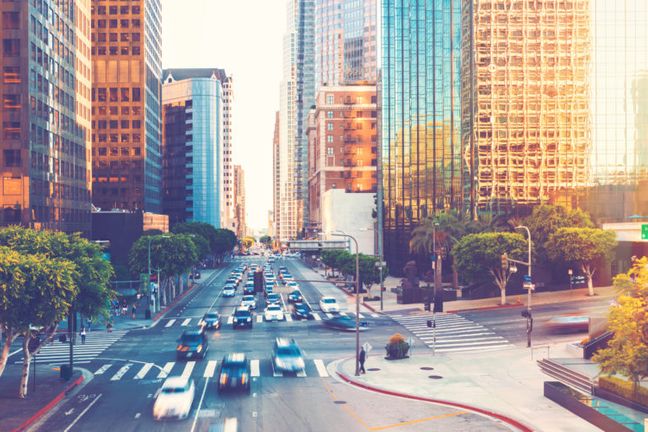A recently issued decision by the California Supreme Court analyzed whether a plaintiff employee may seek to recover unpaid or underpaid wages from his or her employer in an action brought pursuant to the California Private Attorneys General Act of 2004 (“PAGA”) (California Labor Code §§2698 et seq.). The answer: No.
PAGA Actions Generally
In a PAGA action, the employee effectively steps into the shoes of the Attorney General of California. This allows an employee to enforce the state’s labor laws and collect civil penalties from an employer for violations[1]. This serves as a powerful weapon for employees, notably those who are bound by mandatory arbitration agreements and/or class action waivers which their employer required them to sign as a condition of employment. For these employees, PAGA is a critical body of law affording protection from unscrupulous employers wrongly withholding pay or underpaying employees. This is thanks to two California Supreme Court rulings: The first is Arias v. Superior Court which held PAGA actions are not subject to class action requirements; The second is Iskanian v. CLS Transportation Los Angeles which held PAGA claims are not subject to arbitration agreements.
ZB, N.A. v. Superior Court of California
The rulings in Arias and Iskanian paved the way for employees to recover both back pay and civil penalties for labor law violations. However, the Supreme Court’s September 12, 2019 ruling in ZB, N.A. v. Superior Court of California, held employees can only seek to recover civil penalties in a PAGA action—they cannot seek to recover back pay.
ZB concerned a PAGA action in which the employee sought civil penalties and back pay under California Labor Code § 558. This code section provides for the recovery of a civil penalty for unpaid overtime, in addition to “an amount sufficient to recover underpaid wages.” Under PAGA, the employee argued both the civil penalties and the underpaid wages were recoverable.
The Supreme Court disagreed. The Court noted PAGA actions are “representative” actions, brought on the State’s behalf, to recover punitive civil penalties for violation of labor laws. An action to collect punitive civil penalties is “fundamentally a law enforcement action designed to protect the public and not to benefit private parties.” This stands in contrast to restitution of unpaid wages, which are for the benefit of private parties and not punitive in nature. If an employee wants to recover unpaid wages, they must do so in a proceeding separate from a PAGA action. This means an action to recover unpaid wages remains subject to an arbitration agreement and/or class action waiver where either or both are already in place.
A Win For Employers
Employees can still seek to collect back pay. However, the ruling in ZB makes it clear that employees cannot sidestep arbitration agreements or class action waivers in favor of a civil action. The ruling in ZB is a win for employers. Employers should review their employment agreements to ensure consistency with this California Supreme Court decision.
[1] Any award received is split them with the state, which receives 75% of the total award.

 Author: Brian Woolfall
Author: Brian Woolfall
 Cannabis Workers Allege Quota to Trim 4 Pounds a Day Violates the California Labor Code
Cannabis Workers Allege Quota to Trim 4 Pounds a Day Violates the California Labor Code
 The Ninth Circuit Reminds Us: Every Word Matters
The Ninth Circuit Reminds Us: Every Word Matters
 NO WAY, PRO SE! The Consequences of Abusing the Judicial System as a Pro Se Litigant in Colorado
NO WAY, PRO SE! The Consequences of Abusing the Judicial System as a Pro Se Litigant in Colorado
 Victim of Financial Mismanagement or Unlawful Retaliation? New Jersey City University Program Founder Claims School Retaliated After Reporting Alleged Sexual Harassment
Victim of Financial Mismanagement or Unlawful Retaliation? New Jersey City University Program Founder Claims School Retaliated After Reporting Alleged Sexual Harassment
 “Real Housewives” Gets a Reality Check
“Real Housewives” Gets a Reality Check
 Missing a Chapter: Insufficiency of Expert Deposition Testimony in Medical Malpractice Litigation
Missing a Chapter: Insufficiency of Expert Deposition Testimony in Medical Malpractice Litigation
 Crash Course: Why Summary Judgment Misses the Mark in Illinois Multi-Cause Limousine Crash Collision
Crash Course: Why Summary Judgment Misses the Mark in Illinois Multi-Cause Limousine Crash Collision
 Bitter Truths: Lead, Cadmium, and Defective Pleadings in California Chocolate Class Action
Bitter Truths: Lead, Cadmium, and Defective Pleadings in California Chocolate Class Action
 The Law of Unintended Consequences: Including Insurance Brokers in Litigation Strategy Communication May Waive the Attorney-Client Privilege
The Law of Unintended Consequences: Including Insurance Brokers in Litigation Strategy Communication May Waive the Attorney-Client Privilege
 Construction Defect Debate: Does a Latent Defect Ever Become Patent?
Construction Defect Debate: Does a Latent Defect Ever Become Patent?
 A Major Blow to the Practice of “Chalking” Tires to Support Issuance of Parking Tickets
A Major Blow to the Practice of “Chalking” Tires to Support Issuance of Parking Tickets